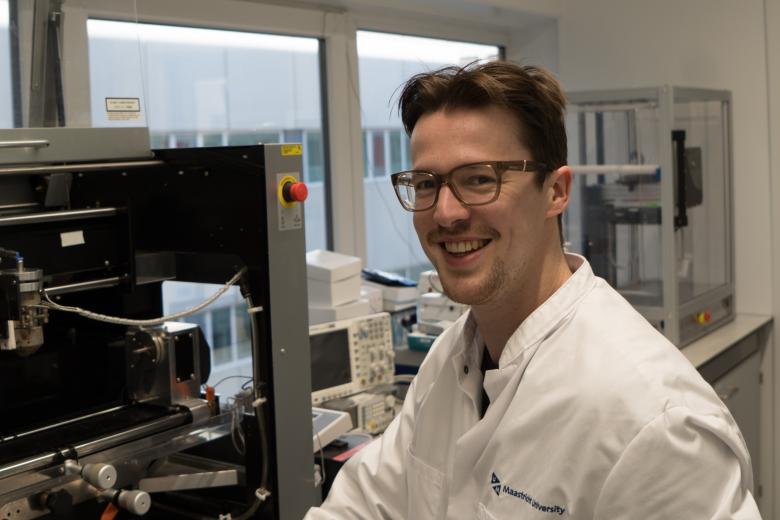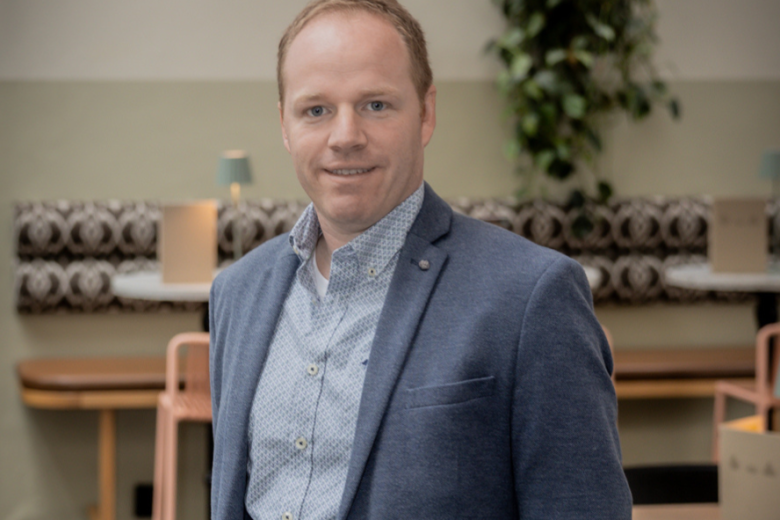European grant for developing innovative cancer drug
Scientists at Maastricht UMC+ and Maastro irradiation clinic have received a 150,000 euro grant from the European Research Council to help them bring an innovative cancer drug a step closer to being available to patients. The Maastricht researchers have their eyes on two promising substances that are able to shut down a specific development process in cancer stem cells. Among other things, this should increase the effect of other therapies and reduce the risk of metastasis.
Tumours often have diverse types of cells and characteristics, which makes them difficult to treat. Radiotherapy and chemotherapy do kill cancer cells, but they also damage healthy tissue. In addition, metastases make a successful treatment even more complicated. There is thus clearly a need for precisely targeted methods of treatment. This is exactly what the radiotherapy department and the research team led by Prof. Marc Vooijs have been doing research on for some considerable time and for which they have now been awarded a grant.
Cancer stem cells
The research is focused on two substances that have the ability to shut down the development process of cancer stem cells. This type of stem cell maintains the diversity within a tumour through the continuous division and self-renewal of cancer cells. This also makes the tumour resistant to therapy, which has the consequence of increasing the likelihood of metastases. A key process in the development and division of cancer stem cells is called NOTCH. If this process is shut down, the cells stop dividing and the tumour becomes more susceptible to therapy. One of the two promising substances (called PSEN2 inhibitor) is intended for exactly that purpose and it is so specific to the tumour that healthy cells (in which NOTCH is also active) are spared.
Low-oxygen parts of the tumour
The other substance that the researchers are interested in only becomes active in the low-oxygen parts of a tumour. These areas are a sign that the tumour can behave aggressively, is resistant to both chemotherapy and immunotherapy, and therefore has an unfavourable prognosis. The substance (called HyGSI dual-specificity inhibitor) also shuts down the development process of the cancer stem cells, but only becomes active in low-oxygen areas, which are normally not present in healthy tissue.
Business case
The researchers are now going to demonstrate further the effectiveness of both substances in mice, before they can take the next step towards being able to use the therapy on patients. "In addition, we are also working on a business case," says lead researcher Vooijs. "In this way, we can act quickly if our research results are positive. Being in a position to actually market a medicine that is suitable for patients is still years away, but our research is also increasing our understanding of the mechanism of tumours. This knowledge is very valuable."
The research project is entitled INGSIGHT (Inhibition of notch/ g-secretase in hypoxic tumours). Prof. Marc Vooijs is one of five Dutch scientists to be awarded an ERC grant in this round. For Vooijs, this is the fourth such grant in his career.
Also read
-
Letting bone and cartilage repair themselves
Tim ten Brink focuses on developing implants for damaged bone and cartilage, so eventually there is less need for invasive surgery.

-
Is prevention cheaper than cure?
Preventing disease is not always cheaper than treating it — but it can be vital for keeping healthcare affordable and accessible. Professor Mickaël Hiligsmann (VHC), newly appointed Professor of Health Preferences and Economics of Prevention at CAPHRI, studies how preventive measures can deliver...

-
Three Vidi grants for FHML researchers
Aurélie Carlier, Bart Spronck and Nicole Leibold receive a Vidi grant of up to 850,000 euros to further develop their lines of research.
